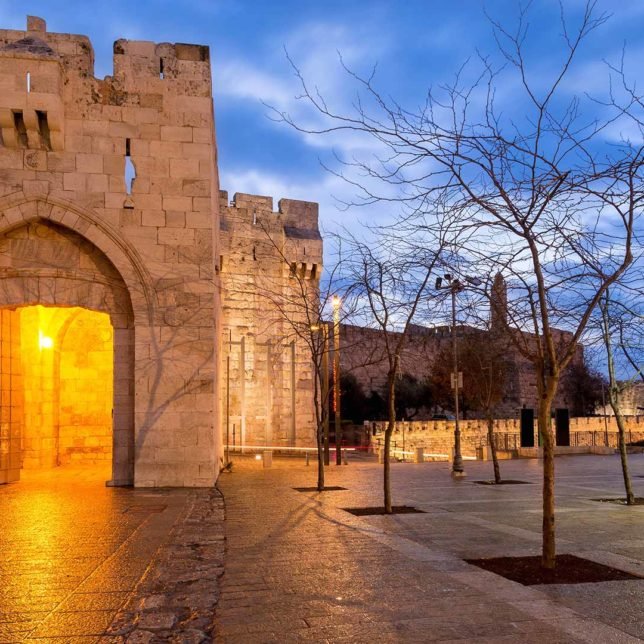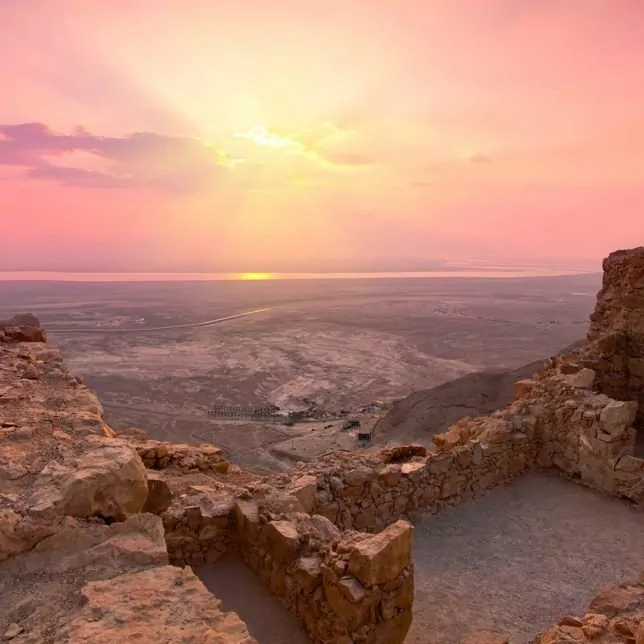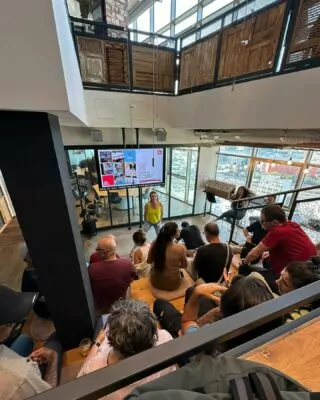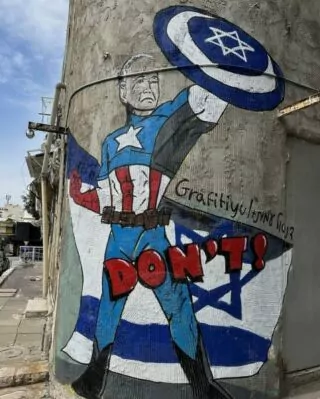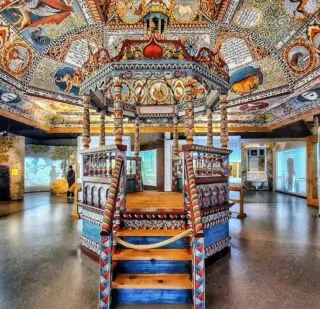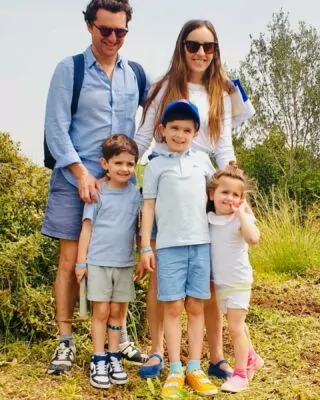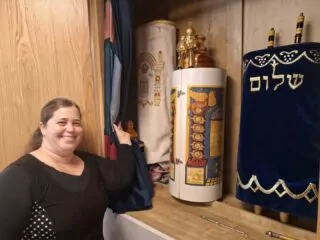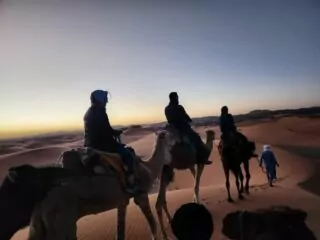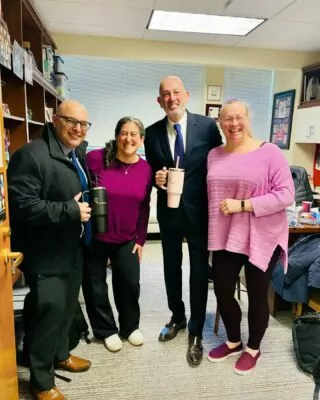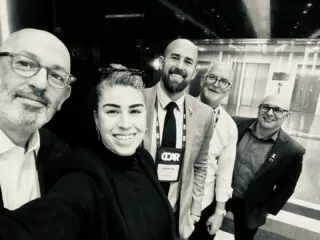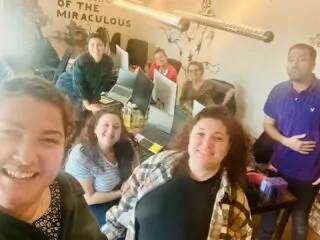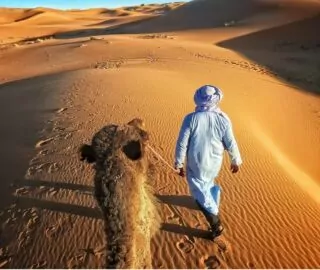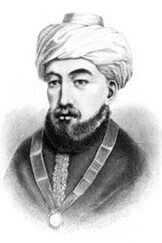
Moses Maimonides 1138-1204
The philosopher, physician, and legal authority Rabbi Moses ben Maimon (generally known as the Rambam or Maimonides) is one of the great figures in all of Jewish history. He was born to a prominent rabbinical family in Cordoba as the golden age for Spanish Jews began to slip away. Fearing they would be forcibly converted to Islam after the fanatical Muslim Almohad dynasty took power in 1148, he and his family fled Cordoba. By around 1166, Maimonides was living in Fes, Morocco, where he trained as a physician and wrote one of the first systematic commentaries on the Mishnah.
The Almohads also persecuted Morocco’s Jews and by 1168, Maimonides had escaped to Egypt. He fell into a deep depression after the death of his brother David, but recovered to become the personal physician to the royal family and Nagid, or head of the country’s Jewish community. Remarkably productive, he also treated many (Jewish and Muslim) patients, wrote important medical books, and authored the Mishneh Torah, a monumental summary and codification of all Jewish law. Equally as groundbreaking was his book Guide to the Perplexed which daringly combined Aristotelian and Islamic philosophy with Jewish teachings. Maimonides’ rationalist approach – including his insistence on the non-corporeality of God and his views regarding the resurrection of the dead – influenced many Jewish and non-Jewish thinkers.
Influential if controversial in his lifetime, Maimonides’ fame grew in the centuries after his death. Even today, his work is widely studied and considered a benchmark of Jewish thought and religion. As a popular Jewish expression puts it: “From Moses [of the Torah] to Moses [Maimonides] there was none like Moses.”
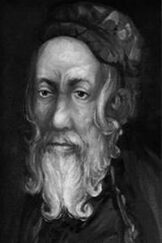
Rabbi Amram Ben-Diwan 1740-1782
The scholar and miracle-worker Rabbi Amram Ben-Diwan is perhaps the most famous Tzadik (Jewish holy man or saint) of Morocco. Born in Jerusalem, he lived and studied in Hebron before being sent to Morocco to raise money for Jews living in the land of Israel. Based in Ashajen near the city of Ouezzane, Ben-Diwan spent ten years in Morocco teaching Torah, Talmud, and Kabbalah. He gained many followers due to his erudition, personality, and the miracles he was believed to carry out.
Returning to the Land of Israel, he soon fell into trouble with the Turkish authorities, apparently because of breaking their prohibition that banned Jews from praying at the Cave of the Patriarchs in Hebron. Forced to flee, he returned to Morocco, where he lived in Fes, taught throughout the country, and was credited with many more miracles. He was also admired by local Muslims as a holy man. He died in his early 40s. According to one story, he died after successfully beseeching God to take his life instead of that of his ill son. Rabbi Ben-Diwan’s grave – marked by a large rock and an olive tree instead of a tomb – in Ouezzane became a pilgrimage site for both Jews and non-Jews. Thousands from Israel. Morocco, and around the world still gather on the Jewish festival days of Tu B’Av (which is the anniversary of his death), Lag BaOmer, and the first day of the month of Elul to praise him and to pray for healing and help.
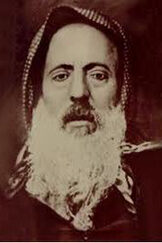
Rabbi Chaim Pinto 1748-1845
Like many of the Tzadikkim (Jewish holy men) of Morocco, Rabbi Chaim Pinto was considered both a learned sage and a miracle-worker and was admired by Muslims as well as Jews. Born in Agadir to a distinguished rabbinical family, he came to prominence in the seaside town of Essaouira (Mogador). He was, for many years, head of its rabbinical court and a prominent religious scholar acclaimed for his mystical powers.
Passing away in his late 90s, his sons and grandsons carried on the family’s rabbinical and Kabbalistic dynasty. Today, the descendants of Rabbi Chaim Pinto ha-Gadol (the Elder) or RR as he is known, lead synagogues and Jewish institutions around the world. His home and synagogue still stand in the old Jewish quarter of Essaouira and on the anniversary of his death, many gather at his graveside for a four-day hiloula, or celebration of his life. It is said that water poured over his tomb has miraculous healing powers.
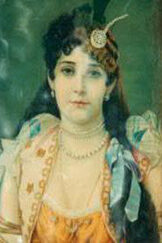
Sol Hachuel 1817-1834
Sol Hachuel was a Jewish martyr who was decapitated at age 17 for refusing to convert to Islam. Born in Tangier, her father was a merchant and Talmudist, and her mother was a housewife. There are many legends about her short life, her death, and her beauty. It is said that “never had the sun of Africa shone on a more perfect beauty.” According to one account, her troubles began when a Muslim friend falsely claimed that Sol had converted to Islam. Threatened with a gruesome death by the local governor if she did not confirm her conversion, she remained obstinate, replying that even if her limbs were torn piecemeal by wild beasts, she would laugh at the thought that both the governor and the prophet Muhammad were unable “to overcome a weak female.”
Sent to Fez for the sultan to decide on her fate, Sol again declined to forsake Judaism. It is said that the sultan’s son, dazzled by her beauty and steadfastness, offered to marry her if she would convert. She refused and was executed in front of a large crowd. Her martyrdom created enormous interest and was depicted by many painters, writers, and musicians over the years. She became known in Hebrew as Sol Ha-Tzaddikah (the righteous Sol) and in Arabic as Lalla Suleika (the holy woman Suleika). Her burial place became a pilgrimage site for both Jews and Muslims.
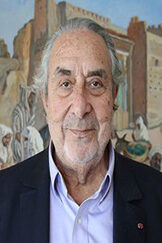
Serge Berdugo Born 1937
Serge Berdugo has been a key leader of Morocco’s Jewish community. Born in Meknes, he studied law in Rabat and Paris. He is the longtime head of the Council of Israelite Communities of Morocco and has been Morocco’s representative to the World Jewish Congress since 1979.
Berdugo has also been prominent in Moroccan national politics, serving as Minister of Tourism in 1993-1995 and as an ambassador at large for Morocco. Berdugo has spoken frequently about his belief that Morocco is a tolerant country with harmonious Muslim-Jewish relations. He led unsuccessful efforts to have Yad Vashem declare King Muhammad V, the grandfather of the current King, one of the “Righteous Among the Nations.” He argued that the king protected Morocco Jews during World War Two from German attempts to deport them to the extermination camps.

André Azoulay Born 1941
André Azoulay is the most influential Jewish figure of modern Morocco. He gained his prominence, like many Moroccan Jewish leaders before him, by serving as a close adviser to the country’s royal rulers. Born in Essaouira, he joined the many Jews leaving Morocco following the upheavals of the 1940s and 1950s. He immigrated to France and in 1967 began a successful career at the Paribas Bank. In 1991, he returned to Morocco to be the special economic counselor to King Hassan II. From 1999 until today, he has been a senior adviser to King Mohammad V, playing a major role in economic reforms.
Azoulay has also played a major part in promoting Muslim-Jewish dialogue in Morocco and around the world. A proponent of the two-state solution in Israel, he has spearheaded efforts to acknowledge the Jewish contribution to Moroccan life and is a leading figure in the public affairs of his hometown Essaouira. In November 2017, his daughter, Audrey, was appointed Director-General of UNESCO.
J2 STUFF.
We have everything you need to know before you go. Check out our Instagram my_j2adventures for cool updates and interesting tidbits.
The J2 App
available on the App Store & on Google Play.

START PLANNING LET’S EXPLORE.
Whether you have a journey in mind, want to join a featured trip, or simply want to explore, drop us a note. We work really hard to be a loved travel company that delivers amazing and memorable experiences. So please do not be surprised when we say “yes” to every reasonable request you make!
